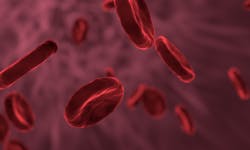In people with immune thrombocytopenia (ITP), the body produces destructive antibodies against platelets in the blood, which increases the risk of bruising, bleeding, hospitalization, death, fatigue, and an impaired quality of life, but a drug called rilzabrutinib has generated promising safety and efficacy results in a recent international multi-center phase 1–2 ITP trial led by investigators at Massachusetts General Hospital (MGH), according to a news release.
The findings, which are published in the New England Journal of Medicine, pave the way for more advanced clinical trials.
Research has shown that cells called macrophages are primarily responsible for destroying antibody-coated platelets in ITP, and an enzyme called Bruton kinase is critical to their function. Although an inhibitor of Bruton kinase that was approved to treat a common form of leukemia decreases macrophage activity and raises platelets counts in patients with both leukemia and ITP, the drug, called ibrutinib, also inhibits the function of platelets, which reduces its efficacy in ITP.
Oral rilzabrutinib was developed as a new type of Bruton kinase inhibitor that reduces macrophage activity and the production of anti-platelet antibodies but does not affect the function of platelets. “We hypothesized that rilzabrutinib would be effective in both reducing the antibody attacking the platelets as well as minimizing the rate of platelet destruction by the macrophages,” says lead author David J. Kuter, MD, DPhil, who is the Program Director of Hematology at MGH and a Professor of Medicine at Harvard Medical School.
In the 60-patient trial that involved a range of rilzabrutinib doses, all treatment-related adverse events were minor and transient. At a median follow-up of approximately 5.5 months of treatment, 24 of the 60 patients (40%) overall and 18 of the 45 patients (40%) who had started rilzabrutinib treatment at the highest dose experienced a significant platelet response. The median time to develop a healthy platelet count was 10.5 days. Among patients who experienced a platelet response, the average percentage of weeks in which they had a healthy platelet count was 65%. The dose of 400 mg twice daily was identified as the dose for further testing.
Importantly, the patients in this study had already tried multiple therapies, and their diseases were considered highly refractory to treatment. A major phase 3 clinical trial is currently underway at many sites, including MGH, to test the effectiveness of rilzabrutinib in patients with ITP that is less refractory to other medications.
“If the findings of our study are borne out in other studies, rilzabrutinib may provide a rapid rise in platelet count and a sustained increase to a safe platelet count number, which could thereby minimize bleeding, and the drug could conceivably make the antibody causing the disease to disappear,” says Kuter. “What is impressive is that this drug lacks major negative effects that have been historically associated with this class of medications. We saw no increased risk of bleeding, infection, liver dysfunction, or intolerance by patients.”

